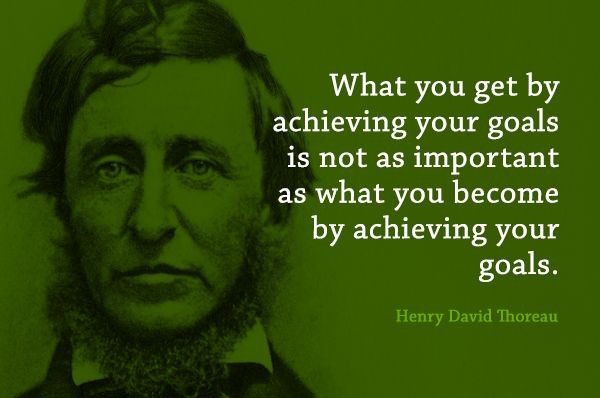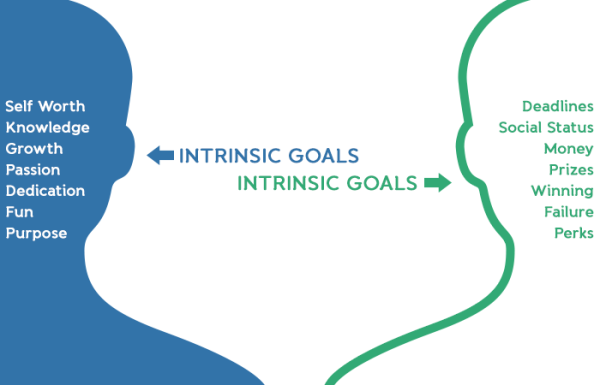When you boil it down, productivity is a string of tasks completed in the most efficient way possible. But how can you measure efficiency without a set deadline or goal?

The fact is, deadlines can feel like a struggle: they turn day-to-day jobs into a race against the clock. But as much as some of us despise deadlines, they’re a critical aspect to a streamlined workflow—especially in a team setting.
From a psychological standpoint, deadlines can be an effective external tool for motivating yourself to reach a goal, especially when they’re implemented in an achievable way.
Goal setting and the danger of far-off deadlines
As we’ve touched on before at the Sqwiggle blog, setting realistic goals is a huge part of both productivity and habit formation. You should think about deadlines in the same way: Deadlines are worthless, and potentially harmful, unless they’re attainable and clear-cut.
When you’re trying to cultivate a new behavior, the most successful course of action seems to be specifically expressing what you’re trying to accomplish, and what the parameters are for success.
Similarly, from a productivity standpoint, research shows that defining specific “where” and “when” parameters for a task increase the likelihood of completing it; deadlines help us define the “when.”
But even with deadlines in place, we have a tendency to procrastinate right up to the time limit. Some people claim that the stress of working under the gun increases the quality of their work and the speed at which they complete it. But a study conducted by Dianne Tice and Roy Baumeister shows that while there may be short-term benefits, the long-term stress and decrease in performance make procrastination a poor strategy.
So instead of using far-off deadlines, try using what psychotherapist Amy Morin calls “now deadlines.” These deadlines act like mini-goals, breaking big projects into smaller tasks, and trick your brain into working more steadily to meet a final deadline.
How deadlines motivate us
Where personal goals start to differ from deadlines is in the way that we’re motivated. In psychology, there are two kinds of motivation: intrinsic and extrinsic. Intrinsic motivation comes from your personal passions and internal drive—you’re deciding to do something on your own, not because someone or something is forcing you to. Extrinsic, on the other hand, is motivation that’s brought on by some external force; whether it’s a manager demanding a report or the threat the power company shutting off your electricity. Extrinsic motivators aren’t always explicit, but they’re the underlying reason for many of our daily actions.
Deadlines tend to fall in the extrinsic realm of motivation—generally a deadline is given to you by your boss, a client, or a team member who’s relying on you for a piece of the project.
While you can set personal goals, most research shows that external motivators are more effective in helping you meet a deadline. In a study conducted by Dan Ariely and Klus Wertenbroch, they found that while self-imposed deadlines can help curb procrastination, external deadlines are much more likely to improve someone’s performance.
Extrinsic motivation is a more effective method for deadlines for the most part because there are measurable negative consequences—like getting fired or disappointing someone. But Dr. Susan Perry argues in Psychology Today that combining internal and external motivators is key to long term success—if you can balance a personal passion for something with external consequences for failing to hit a deadline, you’re more likely to complete your task.
Deadlines for teams and individuals
We tend to think of deadlines in a professional setting, which makes sense: for a well-constructed team to be productive, each member needs to contribute his or her piece in a timely fashion. Workplaces are already a good environment for deadlines—if you don’t complete your part on time, you risk making your coworkers mad—so if you’re struggling with deadlines within a team, it could be a communication issue that’s causing your bottleneck.
But for individuals, deadlines are a little different. The study from Ariely and Wertenbroch mentioned before showed that people are willing to set deadlines for themselves even when there aren’t external consequences—sometimes they work, and sometimes they add layers of stress.
But there are some ways that individuals can use deadlines to their advantage. Melanie Pinola at Lifehacker stresses that you should avoid stress-inducing deadlines and estimate your time generously. On the other hand, Gregory Ciotti at Sparring Mind points out that deadlines can be effective if they’re strict and specific.
Holding yourself accountable
Ultimately, no matter how strict your deadline or regimented your schedule, goals require you to be accountable. One of the most effective ways to take responsibility for your time is task tracking. Ciotti’s method is simple: Create a progress-tracking worksheet that lays out what you want to accomplish, and then write down what you actually accomplish by the end of the day. He says this strategy helps you understand what you’re actually accomplishing, and that it’s a scientifically proven way to avoid attention-grabbing distractions.
It’s also worth noting that when a deadline gets bumped back, we tend to lose motivation—instead of using the extra time to finish up earlier, or do better work, we fall into a cycle of procrastination.
Psychologist Heidi Halvorson says that loss of motivation comes back to the “Goal looms Larger Effect”: when a deadline is closer, we perceive it to be more urgent and work towards it feverishly.
To overcome that impulse, try tracking your work, analyzing what factors contribute to your procrastination, and setting smaller deadlines in the near-term to create that sense of urgency.
Figure out how you work under deadline
Deadlines, both external and self-imposed, are a struggle that we all wrestle with at work. But if you use deadlines in a specific, contained, and deliberate way,—without getting sucked into the void of procrastination—they can be an effective motivator for your team.
The important thing is understanding how you and your employees work under a deadline: Do you need to set more frequent goals? Do you need to track your work for an increased sense of accountability? Or do you need to find that ideal balance of intrinsic and extrinsic motivators? Experiment with different deadline strategies, and find a workflow that maximizes your productivity (while minimizing stress).

